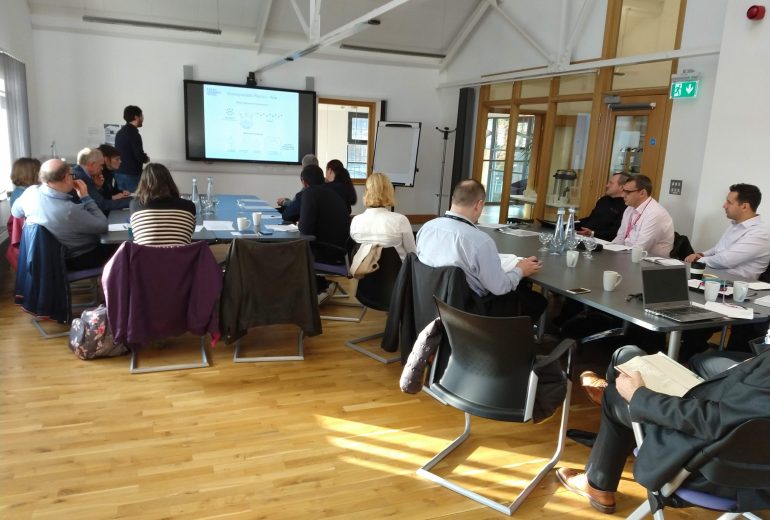A Policy Workshop took place at the University of Hull on 23 October 2019 as part of the Evolving a Circular Plastics Economy (ECPE) project. Stakeholders from a number of sectors including healthcare products, local authority waste management, waste recyclers and chemical firms discussed some of the recent plastics policy consultations and shared their views on what might work as incentives to change plastics behaviour.
The workshop was extremely timely, as consultations over HM Treasury’s proposed plastic packaging tax and Defra’s Resource Strategy are underway, themselves responses to public and media pressure over the alarming environmental impact of single-use plastics in the marine environment. The policy workshop sought to shed some light on this thorny issue as well as update stakeholders on the ECPE project.
There was a particular welcome for Dr Raghava Vanga and Dr Karen Edwards, who both joined ECPE after the last stakeholder meeting. Dr Vanga is researching the recovery and recycling of plastic, whilst Dr Edward’s expertise is in Life Cycle Analysis. This work also includes study of the weathering of plastics, including biodegradable polymers developed by Prof Carl Redshaw and Dr Orlando Santoro from Chemistry, to understand how they degrade in sea-water and other environments.
Professor Rudi Wurzel, from the University of Hull’s Politics department, presented an analysis of smart policy instruments, which use a policy mix and a variety of actors, rather than relying on one instrument or regulator alone. He introduced Bemelmans-Videc et al’s classification, which divides policy instruments according to whether they act as “sticks” (coercion), “carrots” (fiscal incentives) or “sermons” (information and self-regulation). Academics and stakeholders were then split into two groups and invited to work on a number of questions, including:
- Which type of plastic policy instruments does your organisation prefer and why?
- What instruments are required to govern innovative alternative materials such as bioplastics?
Broad agreement centred on the need for clarity in policy instruments with the need for a long-term commitment to change from the UK government needed to incentivise investment, particularly in the UK waste industry.
But what do you think? We’d love to hear.
Email: ecpe@hull.ac.uk
Twitter: @ECPE_Hull
